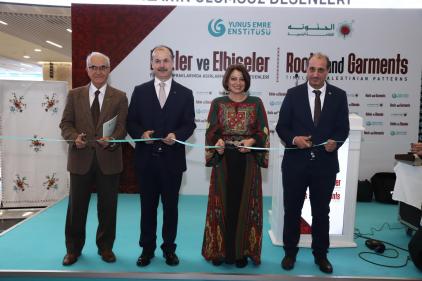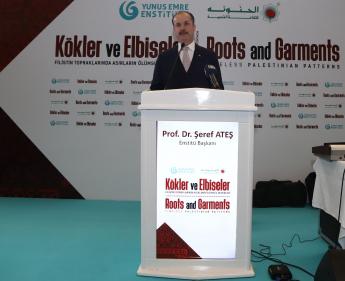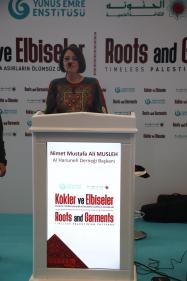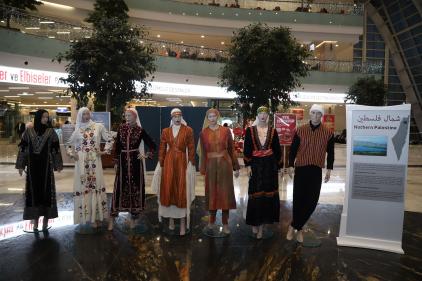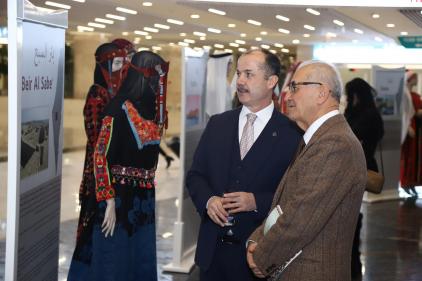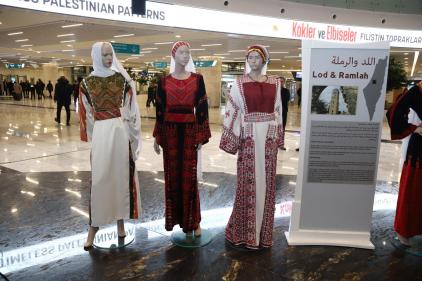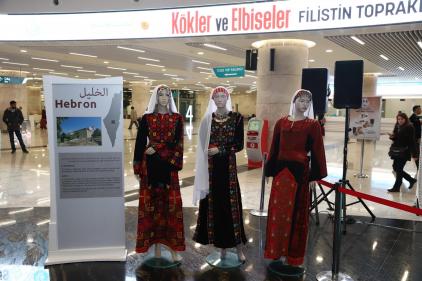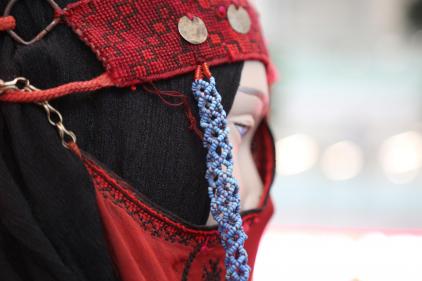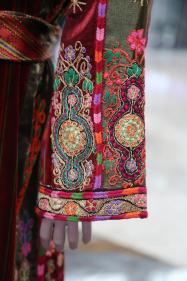Traditional Palestinian attire showcased in Ankara
Yunus Emre Institute has come up with another initiative as part of its activities to promote friendship and cultural ties between Turkey and other countries. The Institute has hosted the exhibition "Roots and Garments - Timeless Palestinian Patterns," which offered traditional Palestinian clothes emblazoned with deep-rooted past in the Palestinian lands.
Prepared by the Jordanian voluntary popular culture community, Al Hanuneh Association, the exhibition was opened to art lovers in Ankara on Thursday, December 20.
Yunus Emre Institute President Prof. Dr. Şeref Ateş and Al Hanuneh Association President Nimet Mustafa Ali Musleh kicked off the opening program attended by representatives of public institutions, international organizations and diplomatic missions.
In his keynote speech, Yunus Emre Institute President Prof. Dr. Şeref Ateş stated that the exhibition seeks to promote the Palestinian culture and civilization worldwide and relies on scientific data.
Noting that the way to permeate peace is to place human being and human production at the center, Prof. Dr. Ateş explained that grace, goodness and beauty in this world can be attained only through culture and art.
Al Hanuneh Association President Nimet Mustafa Ali Musleh pointed out that the association has been collecting many elements of the Palestinian culture including music and culture since 1990s with a view to transfer them to younger generations.
Maintaining that cultural structure is an essential ingredient of being a nation, Nimet Mustafa indicated that some elements of the cultural assets of Palestine, a country with a deep-rooted past, have been brought together in this exhibition.
The exhibition "Roots and Garments - Timeless Palestinian Patterns"
The exhibition puts on display traditional Palestinian garments which were reproduced in order to contribute to the preservation and promotion of the cultural legacy of Palestine. Information on the historical process and regional distribution of these garments is also provided in the exhibition that consists of 35 Palestinian traditional clothes, scarves, wraps, bags and various information panels. These panels contain descriptions of the origins of the dresses, the materials used and the meanings of embroidered motifs.
The exhibition will be open to visitors at Ankara High Speed Train Station until December 27, 2018.

